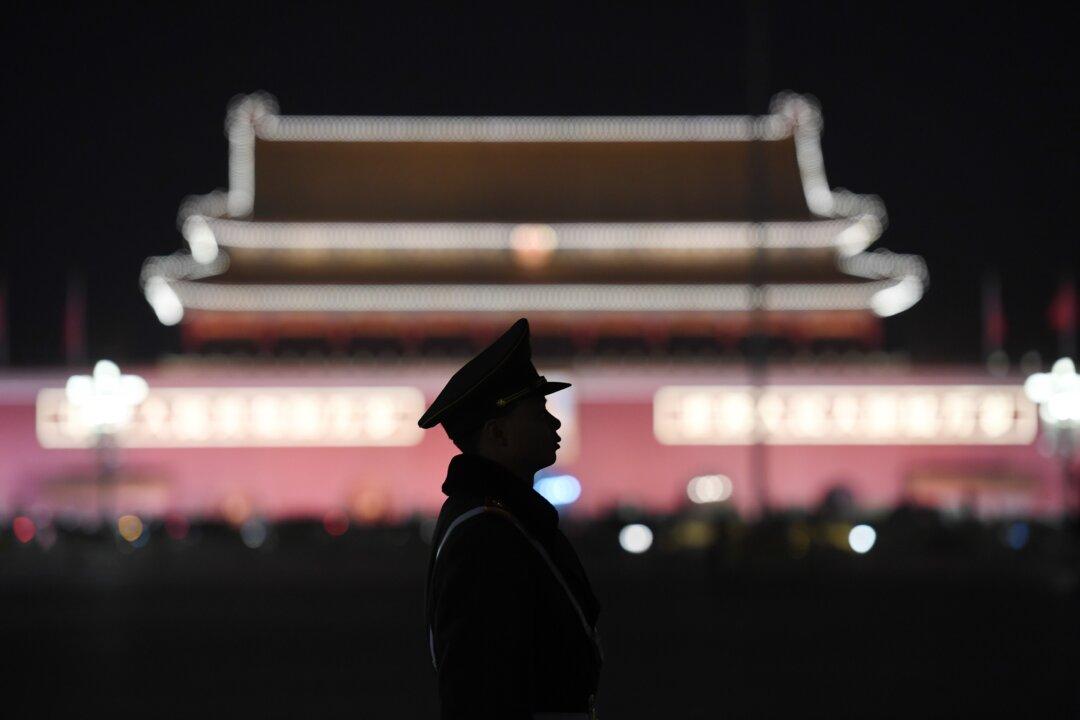
A paramilitary police officer stands guard in Tiananmen Square in Beijing, on March 11, 2018. Greg Baker/AFP via Getty Images
Commentary
In the early years of television, the BBC ran a sober
documentary about the year’s harvest in Switzerland. The crop: spaghetti grown on trees.
